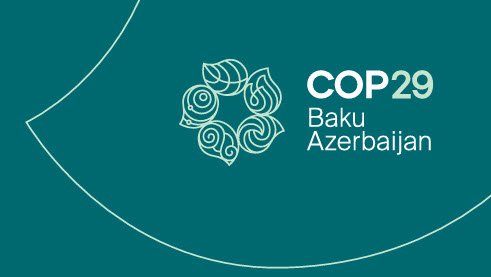Division and discontent spilled into the open on Thursday at a U.N. climate summit in Baku, sparked by a proposal for a new global finance deal which offered two vastly different options and left no one happy as the closing deadline neared.
The key goal of COP29 is to agree how much money richer developed countries should provide poorer developing ones to help them fight climate change, a critical plank in efforts to limit the damage caused by rising global temperatures.
But getting a deal on the money has proved slow going at the talks in Azerbaijan’s capital, and the latest draft of the negotiating text arrived several hours behind schedule as delegates entered, in theory, the closing 48 hours.
With the summit set to wrap up on Friday – but widely expected to overrun – the new document showed much remains undecided on key questions, such as what counts towards the annual figure, who pays and how much.
“The text we now have… is imbalanced, unworkable and unacceptable,” said European Union climate commissioner Wopke Hoekstra. He urged more leadership from Azerbaijan’s COP29 presidency, which takes control of the negotiating process in the final days and compiled the new texts.
Panama’s lead negotiator, Juan Carlos Monterrey Gómez, told Reuters: “All of this is turning into a tragic spectacle, a clown show, because when we get to the last minute, we always get a text that is just so weak.”
Developing countries need at least $1 trillion a year by the end of the decade to cope with climate change, economists told the talks last week.
Although the 10-page document was slimmed to less than half the size of the previous version by stripping out some options, it summed up the opposing positions of blocs of developed and developing nations established before the event.
One focused on ensuring the funds were grants or grant-equivalent in form, and that contributions from developing countries to each other – a nod to large potential donors such as China – were not formally part of the target.
The other, repeating the position of richer countries, aimed to broaden the types of finance that count toward the final annual goal, not just grants from developed countries, and included contributions from others.
Both options avoided stating the total funds countries would aim to invest each year, leaving the space marked with an ‘X’.
The COP29 presidency promised a more streamlined version of the text would be published overnight that would replace the ‘X’ with numbers, sketching out a potential landing zone for a deal.
“This is a moment when you need to put all your cards on the table,” COP29 lead negotiator Yalchin Rafiyev urged countries, speaking at the start of a plenary session where delegations took turns to condemn the current version.
U.N. Secretary-General Antonio Guterres returned to Baku from a G20 meeting in Brazil calling for a major push to get a deal and warning that “failure is not an option”.
FOSSIL FUELS
Some negotiators also said Thursday’s proposals failed to uphold a pledge made at last year’s Dubai summit to transition away from fossil fuels, hailed at the time as a landmark moment.
“We made good progress last year, we must continue that work. In the current text, some of these calls are hidden, pared back or minimised,” said Australian minister for climate change and energy, Chris Bowen, speaking on behalf of the Umbrella Group of countries which includes Japan and the United States.
“This is a big step back and it is not acceptable at this current moment of crisis.”
Saudi Energy Minister Prince Abdulaziz bin Salman has previously described the Dubai deal as a menu of options – suggesting not all countries will select quitting fossil fuels as their chosen path forward.
Human activities – mainly, the burning of fossil fuels – have helped raise the planet’s long-term average temperature by about 1.3 degrees Celsius (2.3 degrees Fahrenheit) since pre-industrial times, driving disastrous floods, hurricanes, droughts and extreme heatwaves.
Countries seek more financing to deliver on the 2015 Paris Agreement goal of limiting the global temperature rise to well below 2 degrees C (3.6 degrees F), and ideally 1.5 degrees C (2.7 degrees F), by the end of the century.
Climate scientists now say the world is now likely to cross that more ambitious threshold, beyond which even more catastrophic climate impacts could occur, in the early 2030s, if not before.
Alongside finance, the future of fossil fuels is at the heart of COP29, where it has stirred disagreement from day one.
Azerbaijan President Ilham Aliyev hit out at Western critics of his country’s oil and gas industry at the opening plenary, describing such resources as a gift from God.
The latest draft text on the Dubai pact referred to “transitioning away from fossil fuels in energy systems” but did not set out clear next steps.
(Reuters)














